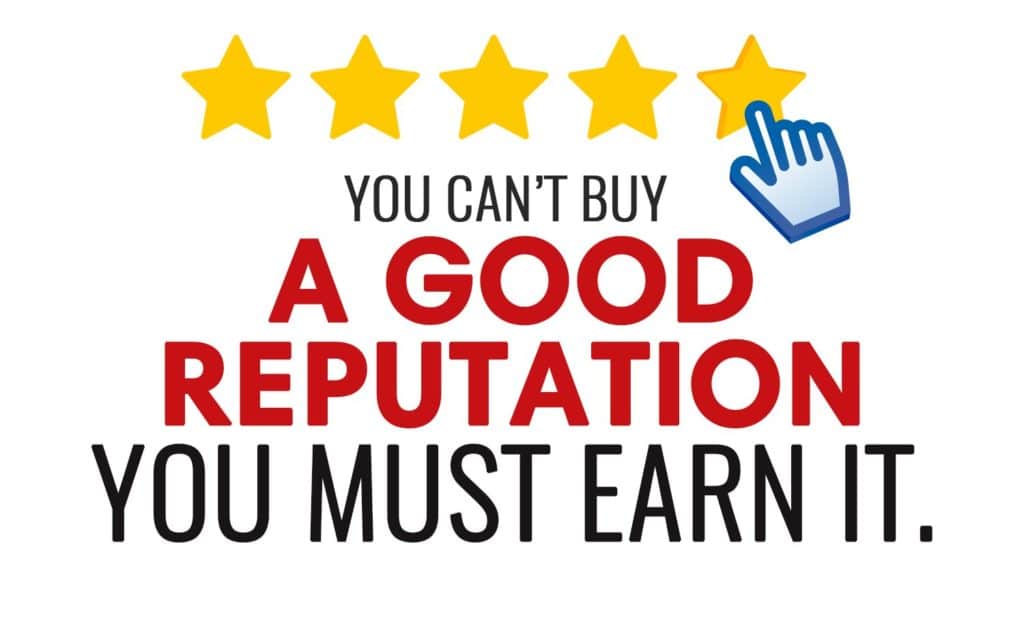What is Reputation Management? Every business requires a good reputation to keep it afloat. A brand with bad reviews from customers will perform very poorly in the market.
The truth is poor performance incurs a business loss, and nobody wants that, do they? The answer is generally a big NO!
To avoid this, business owners would need to look into building their brand name and reputation. Well, this is where business/brand reputation management comes in.

What is Business Reputation Management?
Business reputation management has been called a variety of other names. Some of these names are:
- Brand perception
- Brand management
- Representational management
- Internet reputation management
- Online reputation management
But, whatever you call it, its aim to shape your business and make it better doesn’t change.
Business reputation management is defined as the process of controlling the opinion of the masses about your brand online using several techniques.
The way people see whatever your brand has to offer is important to the success of your brand. Building and influencing peoples’ views is what a business reputation management aims to achieve.
Business Character vs Business Reputation
Don’t get it twisted; business character and business reputation do not mean the same thing.
While, a business character is about your business and how you as the owner, sees it in a nutshell, business reputation spans beyond what business character represents.
Business reputation is what your customers or the general public perceive of your business and how people feel can hardly be controlled.
The only way out is influencing their decisions by offering the most profound goods and services. It is because of this that so much work is put into building a good business reputation.
Of course, there is good and bad business reputation but nobody wants the latter. Sometimes, some business owners find it difficult to protect and build the image of their business.
In this bid, Business owners will have adequately on how to find the right person with enough skill and expertise that would better help them communicate with the masses and build the brand reputation.

Who is in Control of My Business’s Reputation?
After reading the first part of this article, I know some questions would be running through your mind. Questions like; as a business owner, should I be in control of my business reputation? Or if I am not in control of my business reputation, then, who is? Well, the truth about these questions are simple but not generally accepted.
The truth is that you have little or no control over your business reputation. If your business reputation is a pie consisting of 8 triangles, you have control over just 1/8 of it. It is quite small, right? But you need to aware of this if you want to assert dominance over it.
Running a business isn’t easy at all. Hence, controlling everything about your business is a herculean task.
Your employees also have little control over your business reputation, because more than half of the time, they are the ones in contact with the general public. Employees are in control of another 1/8 of your business reputation.
The remaining 6 parts are for the general public and how they perceive your business.
It is because of this that there are several techniques in the world today for building a business reputation. What these techniques aim to do is impact the interaction of your business with the general public in the best ways possible.

4 Tips for Reputation Management
If you can appropriately employ these techniques then be rest assured that your business will be perceived better by the general public.
Some of these techniques may include:
1. Content creation
To ensure that your business reputation is well managed, you must create positive content. Use several mediums like blogs, social media, and your website to push and spread amazing content about your business.
2. Communication
Once your business gets to the public eye, your business would be met with both positive and negative comments. Now, how you interact with the negative comments will go a long way to portray what your business represents.
The best apology is changed behavior, so, for every negative comment, an improvement should follow en suite. Mind you, while paying keen attention to the negatives, do not forget to appreciate the positives.
3. Self-assessment
Carryout an individual general assessment of your business. Make deductions based on what pops up when you search your business on Google. If what pops up upon your search are mostly positives that means you are doing something right. If they are mostly negatives that means you need to buckle up and do better.
4. Transparency
People in general appreciate transparency a lot. They want to be sure of the services and goods your business has to offer. In this light, do well to ensure that you are always forthcoming. The more your hide details about your brand represent, the fewer people would be encouraged to patronize you.
What is Reputation Management? Video
Intro from Reputation Management Video
Over 80% of shoppers will actually Google your business before they make a purchase, and that’s online OR in-store… this makes your ONLINE reputation more important than ever. There are 2 major aspects to online reputation management — find out more, inside the video.
Hey guys, it’s Chia from Brand24 and today I want to talk about online reputation management. Managing your online reputation, especially for a business, is about closing the gap between two separate concepts: so that is how your COMPANY perceives itself VS how the PUBLIC perceives it.
If you’re lucky, these 2 concepts won’t be too far off from one another, but that’s not always the case. Reputation management in the traditional sense (meaning offline) is really closely related to PR, or public relations.
Before Google (which is basically before the Internet), managing your business reputation and shaping the public perception of your company was mostly based on offline activities, so companies were focused on reaching out to journalists, trying to get in touch with reporters, or attending events and other networking opportunities.
